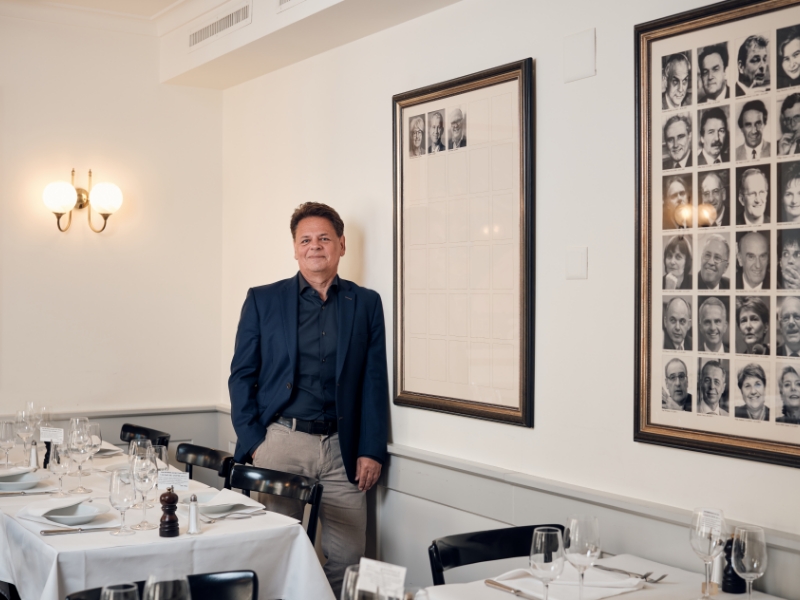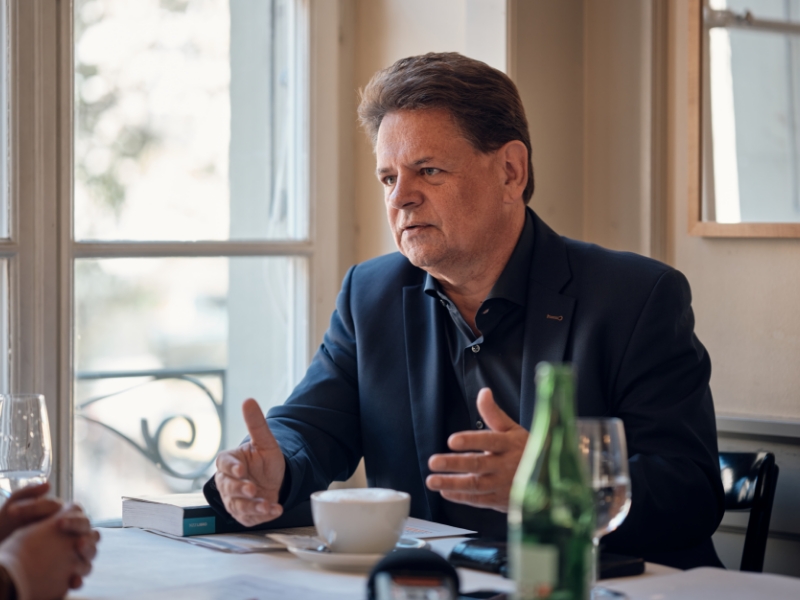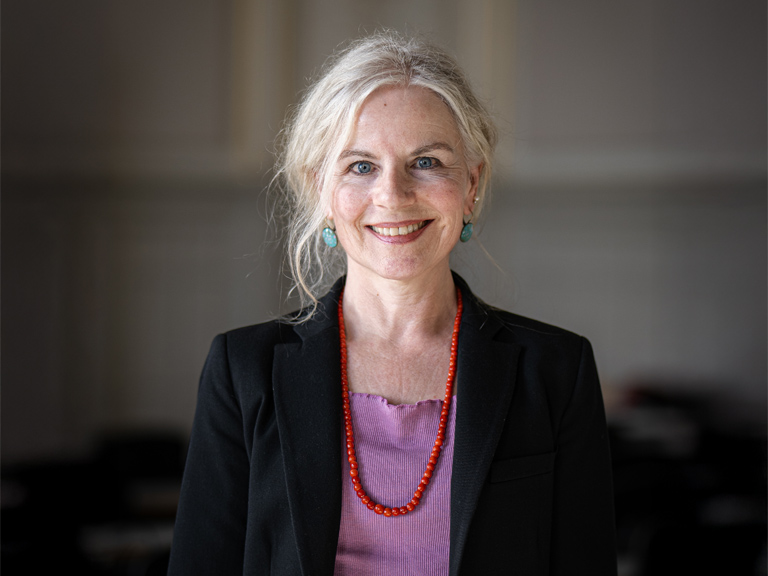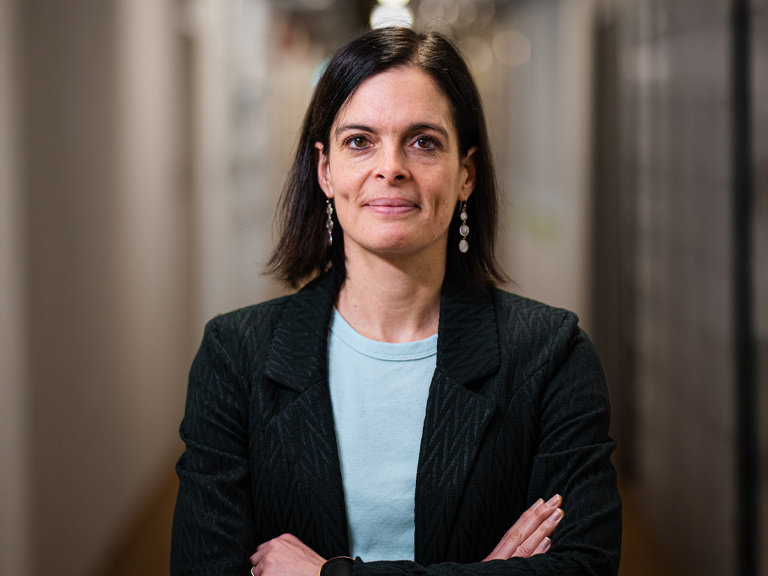Political Science
The Federal Council: Rigid, but modern
The Federal Council has operated the same way for almost 180 years. Should it undergo a radical modernization? Despite no major reforms, the Federal Council is very modern in certain respects, says Adrian Vatter, professor of political science.

In November 1848, the first seven Federal Councillors took the reins. After referendums in the cantons, the Swiss Parliament (Tagsatzung) also adopted the text of the new Swiss Federal Constitution, thus creating Europe’s first stable democracy.
Almost 180 years later, in March 2025: Should we be worried that Switzerland may soon no longer be able to find Federal Councillors? The search for a successor to Federal Councillor Viola Amherd is proving difficult for the Center Party. Some top candidates are even withdrawing, saying the office is incompatible with their family lives.
Is the Federal Council, in the form we know it soon going to be obsolete? Does it need a radical modernization to stay viable in today’s working world and avoid further loss of appeal?
Subscribe to the uniAKTUELL newsletter

Discover stories about the research at the University of Bern and the people behind it.
April 2025: Adrian Vatter, professor of Swiss politics at the University of Bern and expert on the Federal Council, sits in Café Entrecôte Fédérale, the historic restaurant where politicians have been coming and going since 1880. On the wall of the first floor hang 119 portraits of all past Federal Councillors. What do the first Federal Councillor and the most recent Federal Councillor have in common? Their office functions similarly today to back then. The Federal Council: it has never been fundamentally reformed.
Adrian Vatter: In terms of diversity, the body was actually ahead of its time - from the beginning, it integrated various parts of society, from different regions and language areas, parties, and groups – except women or long-term residents without Swiss citizenship. In that regard, the Federal Council is still not diverse or “modern” enough today, and it is also quite old in terms of age structure.
So it depends. The Federal Council and the Federal Chancellery are, for example, very active behind the scenes in advancing the digitalization of the administration. The Federal Councillors use modern communication tools; they are, without question, keeping up with the times.
“The Federal Council promotes group intelligence and strongly appeals to personal responsibility – in these aspects, the Federal Council is extremely modern.”
Adrian Vatter
In certain respects, the Federal Council was a very modern decision-making body early on: The hierarchies are flat, and decisions are made not by majority vote but through deliberation, discussion, and consensus-building. This way, the Federal Council promotes group intelligence and strongly emphasizes individual responsibility – in these aspects, the Federal Council is extremely modern.
Yes, most female Federal Councillors were childless. Having children is, of course, not a formal exclusion criterion. But the office is very hard to reconcile with family life: The day starts at 6.30 a.m., and from then on you are controlled by others until the evening and your schedule is packed with appointments at home and abroad. That leaves only the weekend for reviewing documents, which is extremely demanding.
Wouldn’t it make sense to have two people per Federal Council seat in the future – a typical co-leadership model?That would mean a loss of power, which the members of the government don’t want. And the more Federal Councillors there are, the more coordination is required. That’s time-consuming and labor-intensive. But it would work the way others do it: Other countries the size of Switzerland have 15, 20, or 25 ministers. We always have the same seven people who travel everywhere, whereas in other places, the duties are shared.

Yes, realistically speaking, we won’t see job-sharing or more options for working from home in the Federal Council anytime soon. But my impression is: nobody thinks it’s good that there are currently only two women on the Federal Council. The political pressure on this issue is huge. I assume nobody wants to go back to the 1990s. But the ball is first in the court of the political parties and women’s organizations. They definitely need to develop long-term female candidates.
It seems like the huge workload is something people are just expected to endure. Is that Swiss diligence, our mindset?Well, it’s clear that members of the Federal Council are exceptionally conscientious and hardworking. But the office is still attractive. Being in the Federal Council means you’re at the pinnacle of power. Of course, the huge workload and lack of autonomy are challenges. On the other hand: If you truly want to shape and influence as a politician, you’re willing to pay that price. What we saw during the last Federal Council elections is new. Even though the office is highly prestigious, the new generation – like Martin Candinas or Flavia Wasserfallen – is setting different priorities and declined it in favor of their families.
So in Switzerland, the status quo is basically the only thing that works.Yes, that’s the case. The Federal Council and the administration proved that during a crisis situation, like the COVID-19 pandemic. Many civil servants and female politicians performed tremendous work. That shouldn’t be underestimated. Many critical voices overlook that.
“Dividing the work among more people carries risks, requires more coordination, and a non-hierarchical body stops functioning beyond a certain size.”
Adrian Vatter
People often say the administrative apparatus is bloated and inefficient. Does this perception also make reform or modernization of the Federal Council impossible?Compared internationally, our administration is, first of all, not that large, and secondly, relatively efficient and not corrupt. It is – with a few exceptions – digitally very agile, but it has clear hierarchies. But it’s true: expanding the Federal Council or the administration in general is not politically viable and would meet with broad resistance. In 2019 , SP National Councilor from Bern, Nadine Masshardt, submitted a parliamentary initiative to expand the Federal Council to nine members. It was approved in committees and even in the National Council plenary, but ultimately failed in the Council of States. That kind of proposal might come back to the table.
So does the Federal Council simply need more members?I don’t think that’s the solution. Dividing responsibilities among more people brings risks, demands more coordination, and at a certain size, a non-hierarchical body stops working – at that point, leadership is needed.
What do you propose?In my conversations with around twenty former Federal Councillors, many shared the same view: We don’t need to expand the body, but we do need to strengthen its leadership and performance capabilities. For example, through a presidential department, as some cantons and cities already have. The Federal Council is both the head of the administration and the executive leadership of the state – in one person.
“I am convinced that the Federal Council of the future will be more female, more diverse, and younger.”
Adrian Vatter
You’ve researched the Federal Council in depth – the Swiss government was a major gap in political science for many years. What do you find so fascinating about this outdated and unreformable body?That it really shouldn’t work at all – that’s what fascinated me: There is no head of government, no government program, everyone is equal. There is no priority setting like in a coalition agreement, and the Federal Council has no guaranteed majorities in Parliament. Those are extremely difficult conditions. And yet: the Swiss Federal Council is the most stable government in the world, perhaps alongside the U.S. presidency.
Looking to the future – let’s say April 2125 – what might the Federal Council look like then?I believe it will be more female, more diverse, and younger. I’m convinced of that. If you look at the average age, our government is currently the second-oldest in Europe! At the same time, I think its core – as a collegial body – will change very little. It has served us well so far. The Federal Council enjoys a high level of trust, we believe in its stability, and it is indeed capable of evolving – think flat hierarchies. But perhaps it will govern more through networks – meaning more experts will join the government to take on specific complex tasks.
About the person
Adrian Vatter
has been Co-Director at the Institute of Political Science at the University of Bern and Professor of Swiss Politics since August 2009. Between 2003 and 2009, he was a professor at the University of Konstanz and the University of Zurich. His research focuses on Swiss politics, comparative empirical democracy studies, and political institutions.
About the Institute of Political Science (IPW) at the University of Bern
The IPW is one of the leading political science institutes in Switzerland. It conducts both basic and practice-oriented commissioned research. The core findings feed into its degree programs: the Bachelor's in Social Sciences, the Master’s in Political Science, and the unique Swiss-wide program “Swiss Politics in Comparative Perspective”. Its special areas for teaching and research include Political Institutions and Actors, European Politics, Climate, Environment and Energy, Public Opinion, and Gender in Politics and Society. In addition, the IPW provides services to the public, such as the Swiss Politics Yearbook (Année Politique Suisse).
Magazine uniFOKUS

The changing world of work
This article first appeared in uniFOKUS, the University of Bern print magazine. Four times a year, uniFOKUS focuses on one specialist area from different points of view. Current focus topic: The changing world of work
Subscribe to uniFOKUS magazine

